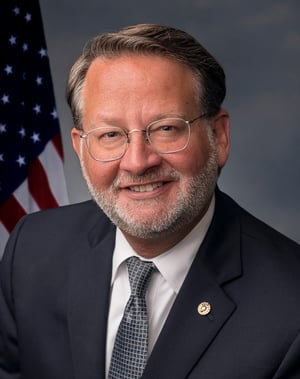
WASHINGTON, DC – U.S. Senator Gary Peters (MI) and U.S. Representatives Debbie Dingell (MI-12), Haley Stevens (MI-11) and Peter Meijer (MI-03) urged President Biden to fund initiatives to restore and increase semiconductor manufacturing in the U.S. from the Creating Helpful Incentives to Produce Semiconductors (CHIPS) for America Act that were signed into law as part of the FY21 National Defense Authorization Act. They made the request — as part of an effort to address the semiconductor shortage facing auto manufacturing, including in Michigan — along with a bipartisan, bicameral group of their colleagues.
“We write today to encourage you to prioritize securing funding to implement the initiatives authorized in the CHIPS for America Act that were enacted into law as part of the fiscal year 2021 National Defense Authorization Act,” the lawmakers wrote.
“We would specifically request you consider joining us in support of funding levels that are at least the authorized amounts proposed in the original bill as you work with Congress on a package of policies to better compete with China and how best to strengthen our country’s economic competitiveness and resiliency as well as national security.”
“…The United States cannot wait to provide these resources over the years ahead. The halted production lines for consumer technology, auto manufacturers, truckers, and other critical industries due to a semiconductor shortage further highlights the pressing need to act quickly and fund the enacted bipartisan provisions.”
The full letter can be found below and is here.
Dear President Biden,
We write today to encourage you to prioritize securing funding to implement the initiatives authorized in the CHIPS for America Act that were enacted into law as part of the fiscal year 2021 National Defense Authorization Act (referred to as the ‘CHIPS provisions’). We would specifically request you consider joining us in support of funding levels that are at least the authorized amounts proposed in the original bill as you work with Congress on a package of policies to better compete with China and how best to strengthen our country’s economic competitiveness and resiliency as well as national security.
While signing your Executive Order on America’s Supply Chains on February 24, 2021, we were pleased to hear your comments: “bipartisan work has already been done…We need to make sure these supply chains are secure and reliable. I’m directing senior officials in my administration to work with industrial leaders to identify solutions to this semiconductor shortfall and work very hard with the House and Senate.” We agree that the United States must build on the bipartisan Congressional efforts to authorize the CHIPS provisions and now swiftly move to fund these programs so they can be implemented and begin to address the current supply-chain vulnerabilities that threaten our national and economic security and ensure our nation’s continued global leadership in this critical technology. We are especially encouraged by the opportunity to do emergency mandatory funding for implementation of CHIPS as part of a competitiveness package the Senate is currently compiling, and would welcome your support in that effort.
The United States cannot wait to provide these resources over the years ahead. The halted production lines for consumer technology, auto manufacturers, truckers, and other critical industries due to a semiconductor shortage further highlights the pressing need to act quickly and fund the enacted bipartisan provisions.
In your Build Back Better initiative, you recognized the value of restoring critical supply chains to U.S. soil to help revitalize our domestic manufacturing capacity and create good-paying jobs. Full funding and implementation of CHIPS would reinvigorate our economy by creating high-paying jobs, developing talent pipelines for American workers, and increasing technological innovation. The CHIPS provisions authorize funding for manufacturing, R&D and job-training programs, with a focus on creating pathways for Americans to acquire the skills necessary for these jobs, including expanding employment opportunities for disadvantaged workers. Ensuring these provisions are fully funded would support thousands of American jobs and create a ripple effect throughout the economy, benefiting countless industries, communities and working families.
In addition to enabling sustainable economic growth today, funding the CHIPS provisions is a top national security priority. The Chinese Communist Party (CCP) has aggressive plans to reorient and dominate the semiconductor supply chain, pouring over $150 billion in semiconductor manufacturing subsidies and investing $1.4 trillion in their efforts to become the dominate global technological power. Even full funding of the originally filed CHIPS provisions pales in comparison to the investments being made by the CCP, which speaks to why consideration of an even higher level of funding is worthwhile.
The United States must also work with our allies and strategic partners to out-scale the CCP in manufacturing capabilities for advanced semiconductors. If we lose these highly-skilled jobs and know-how to China, the United States will never recapture them. Further, we risk dependence on a strategic competitor for the advanced semiconductors that power our economy, military, and critical infrastructure.
As you develop your FY 2022 budget request, we encourage you to include some initial investments to support semiconductor R&D and manufacturing at agencies like Commerce, DOD, DOE, and NSF as intended by CHIPS.
Finally, should you explore executive actions to address this urgent semiconductor matter, we encourage you to continue pursuing a technology neutral approach.
We are committed to meeting the national imperative of securing our critical supply chains and look forward to working with you and your Administration to achieve this vital objective.
###













